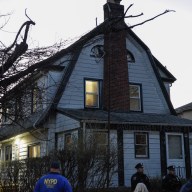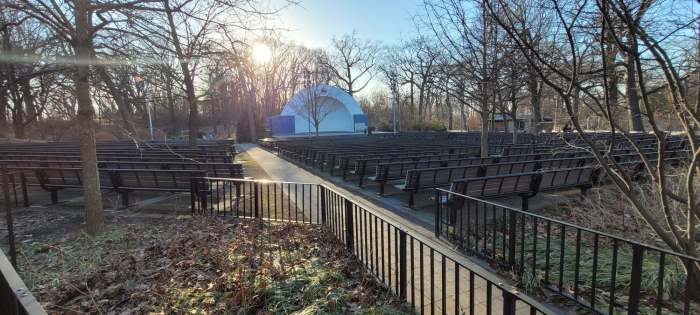By Daniel Massey
Inspired by their desire to remain healthy rather than a fear of anthrax, 200 older adults turned out for the launching of a citywide flu shot campaign last Thursday in Kew Gardens.
In the past two weeks, Mayor Giuliani has urged all New Yorkers to get flu shots because the symptoms of influenza — fever, lack of energy, sore throat and muscle aches— are similar to the early signs of inhalation anthrax.
Some health authorities have taken issue with his call, however.
Borough President Claire Shulman and City Councilwoman Helen Marshall (D-East Elmhurst) were among those who received influenza vaccinations at the Kew Gardens Community Center as part of the American Lung Association’s inaugural five-borough flu program.
The citywide program is an extension of one that began with the distribution of 20,000 vaccines in Queens last year. Shots will be administered, free of charge to those without health insurance at hospitals, satellite clinics, senior centers and other locations citywide through December.
The demand for flu shots has risen across the city since Giuliani recommended all New Yorkers should be inoculated. But the seniors who showed up in Kew Gardens, officials from the Lung Association and the doctor who administered the vaccines said flu shots and anthrax were separate health concerns. Staying healthy during the flu season, which runs from November through April, is the primary reason to get a flu shot, they said.
“People need the shot for proper assistance in fighting what in many cases, especially among the elderly, leads to more devastating illnesses,” said Bob Lobdell, first vice president of the American Lung Association of Queens. “Older people are particularly susceptible to illness, so it’s important for them to participate aside from the potential for confusion with symptoms of anthrax.”
Queens, home to more than 400,000 people 60 and over, has the city’s largest older population.
Marshall, in the final days before her expected election as the new borough president, said getting a flu shot was “very important.” She said “as a councilwoman I’m very busy. I can’t afford to get sick.
Beverly Kapner, of Howard Beach, has gotten a flu shot each year since she missed her friend’s wedding four years ago because she got sick. “It’s important to get a shot every year,” she said.
“I’m getting a flu shot for prevention of the flu, not because of anthrax,” said William Verdone, of Forest Hills. “There’s no panic. It’s something I do every year.”
According to the most recent figures from the Centers for Disease Control, 95 million cases of flu are reported annually in the United States, resulting in 70 million lost work days and 20,000 deaths.
The flu shot, which is 70 percent to 90 percent effective in preventing influenza, reduces respiratory illness death rates in seniors by 85 percent, according to city health officials.
Dr. Wilfredo Lao of New York Hospital Medical Center of Queens, who was administering shots at the Kew Gardens center, said many people have rushed to be vaccinated against influenza since Giuliani made his suggestion.
“Right now a lot of people are getting the shots,” he said. “There’s a great shortage of flu vaccines everywhere.”
Despite Giuliani’s call, the CDC maintains available supplies of flu vaccine should be reserved for those most susceptible to illness until manufacturers made more units.
Lobdell said the lung association “may have to establish priority” in determining who should be vaccinated as part of the five-borough program.
“The people who really need it should get it,” said Lao, noting that preference should be given to seniors, young children, people with chronic lung conditions such as asthma, and health care workers.
“We shouldn’t stay away from the normal indicators in determining who gets the vaccine,” said Lao, who disagreed with Giuliani over using flu shots to ward off anthrax. “It will cause an undue shortage.”
Reach reporter Daniel Massey by e-mail at Timesledger@aol.com or call 229-0300, Ext. 156.
































